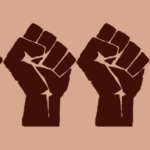Ottessa Moshfegh is no stranger to the psychologically dark side of the human condition. Her breakout novel. Eileen, introduced readers to Eileen Dunlop, a young woman rife with self-loathing and resentment, seeking escape in fantasy and shoplifting. Her 2018 novel, My Year of Rest and Relaxation, centered around a young, thin, and pretty New York City resident as she seeks out a way to quite literally hibernate throughout life. Her first novel, McGlue, a personal favorite of mine, centered around the eponymous character and his drunken violent adventures.
Now, in her latest novel, Death in Her Hands, Moshfegh has created a character at an entirely different phase of her life. Magda faces none other than memory and old age, complete with the illuminating quality imagination can have even as it descends into chaos. The novel was written years ago and left to be found in a drawer by Moshfegh, who took it upon herself to revive it.
I spoke to her about the book, the life of the author and their relationship with their work, the COVID-19 pandemic, and more.
Seidlinger: I hear Death in Her Hands was written many years ago and was sort of forgotten until you found it again, on chance. How did it come about?
Moshfegh: I wrote it without thinking I’d ever publish it. It was a very private writing experience, written at a very particular time in my life. So much had changed in the three or four years since I wrote it. I wasn’t looking for it, I just kind of rediscovered it. It just occurred to me to go back and look at that thing I had been working on. I had just come back from doing all this promotion for My Year of Rest and Relaxation and had come back from tour, and I was excited to get started on my next book, which I’m still kind of in a holding phase with; I found Death in Her Hands and it really moved me in ways that I didn’t expect it. Maybe because so much had changed since writing it, maybe my sensitivities had shifted or I had forgotten what that writing meant to me and what that energy brought to the spirit of the character. It really haunted me after I read it. I felt like I needed to go back and make it… “something.” When I sent it to my agent, asking what do you think of this? I mentioned that it was really weird, but I wanted to share it and see what he thought. I didn’t think he took it seriously; it took him a long time to read it. I kind of thought, you know, maybe this is just one for me. In some ways it was and still is, publishing it under these circumstances is so bizarre.
How do you associate yourself with your work—your individual books. Do you always have a personal or spiritual connection with each book, or do you look at a book differently as you write, and then promote, it?
I think that my feelings about a book shift throughout the process of writing, as it turns into the thing it will be. There is probably some kind of pattern of initial elation and terror, and around a quarter of the way through, there might be another wave of “oh my god, I don’t know, where am I going? Do I want to just disappear instead of following through?” And then more elation, and fascination, and at times it’ll feel like it’s happening automatically and I feel amazing and grateful, and then another psychic trap will pop up. I sense that there is a very intimate relationship with the book and then it feels like a part of me in the past. When the book is in the hands of the industry, pre-publication, I just have to completely detach from it, because it becomes something else. It’s being discussed as a product and if I were to see that product it would be crushing. I kind of detach from the book at that point, and then after it’s been published, after a few years—like I feel pretty good about Eileen at this point, it came out like 5 years ago. I feel like it has returned to me for a couple of different reasons.
What are some of the reasons why Eileen has come back to you?
I think partly because maybe people have forgotten about it, and I have recovered from the exhaustion of having to think of it through the lens of everyone who has interviewed me and all the readers at my readings asking me questions about it, and the book being talked about as something separate from me. The book itself was so incredibly important to me and my career, so I still have really complicated feelings about it. Now I can kind of see it as this “project” again. It was a story, and I remember writing it now, and I’m not remembering some less wonderful things about the experience with the book. It has reemerged in my heart as something that is mine and I love it.
Do you have any other drawer/back-burner books waiting to be rediscovered?
“Well I put things aside a lot. Every project I’ve written I usually take a year away from, during the drafting.”
Well I put things aside a lot. Every project I’ve written I usually take a year away from, during the drafting—I did that with McGlue, I did it with Eileen, I did it with Rest—I think, yeah, I tend to do that. The book that I was working on yearly, this new novel called The Passenger, I’m not working on now… because I’ve been working on a lot of film scripts in the last year. When the shutdown started, I needed a new fiction project so I have been writing a new fiction project for the last couple months. I do put things aside until it just feels like, “Okay, now is the time.”
Death in Her Hands is haunting, so surreal and enigmatic; it makes me want to ask about your interest, if any, in the darkly psychological side of the human condition—you know, the urge to harm, the compulsion to destroy, etc. Do you find that you end up exploring these areas subconsciously or deliberately?
That’s just the way that I think. It’s not even an approach. It’s intrinsically what I am capable of doing. What I’m supposed to be doing. It’s more like my gravity, it isn’t trying to be gravity. Gravity is just gravity. Before Eileen came out, I didn’t even know if people were going to talk about her as a certain kind of character. I was just thinking, she’s a person, she’s a character. I didn’t think of her as so different. It feels very familiar to me, going to write a novel that is character-based that propels the story. What do I find interesting in people? Their struggles? I don’t know anyone who doesn’t have any inner struggles. So for me, it’s, “What’s the big deal?” But I guess not everyone is like that so it seems different. The only reference I can come up with to explain is April Ludgate from Parks and Recreation… I’m not that.
What do you see in Magda—what resonates about her?
She’s so innocent and is trying so hard. She’s a very child-like character in some ways, and she’s experiencing her own awakening about her life. But what I feel most powerfully about Magda is this notion that we can live a whole life, and look back on it, and realize we wished it had been different. What do we do with that? How can we handle that? Are you in your thirties?
I’m 34 and I’m already thinking that way. I’m looking back and thinking—fuck I should have continued pursuing music or something.
I feel like I’m just starting to realize, “Oh wow, I can’t turn back.” But I still know that I’ll be probably alive another 25 years minimum.
Do you look forward to growing old?
“I enjoy the passage of time. But honestly, if the world gets much worse, I’m not going to stay. I just know that about me.”
I enjoy the passage of time. But honestly, if the world gets much worse, I’m not going to stay. I just know that about me. The thing about “old age,” and what appeals to me is the maturity, that you don’t have to give a shit about all the things you were obsessed with as a kid. It’s very liberating. The older I get, I get to know myself more. I get to see what my bullshit is more, and ask myself, “Do I really want to stay that way?” Or am I willing to let go of that and find something else. I like getting older. Getting older rocks, it is amazing. It is what life is.
Do you prefer dreams or nightmares?
I don’t really make a distinction. I’ve been dreaming in a post-apocalyptic world since I was a kid, so there’s a sense that a nightmare feels like a very different kind of dream and happens very very rarely. I don’t think there’s just a “dream” and a “nightmare.” I feel it’s more complicated. My favorite ones are the ones where I can enjoy… something. I don’t know. Like a simple dream where I am stepping into sunshine and feeling that warmth. My favorite dreams have dogs in them. I have a lot of dreams with dogs in them.
What’s been keeping you sane during the pandemic?
Besides my dog, Walter, I would say, I live in a really beautiful place, Pasadena, it’s very very beautiful and green. There’s a lot of birds and butterflies, and wildflowers blooming. When I wake up in the morning, the sun is golden and soft. Stuff like that—it’s like, “K, this is all still here, no matter what, I can still be here, I feel safe here at home with my partner.” My work keeps me sane, staying active and goal-oriented, because otherwise the future could feel really bleak and terrifying. And every night at 6pm I have a Zoom meeting with my closest friends and people and we speak personally about our daily experiences through this. I feel really fortunate to be where I am and to be someone self-employed and to keep working.
—Author photo by Jake Belcher


















